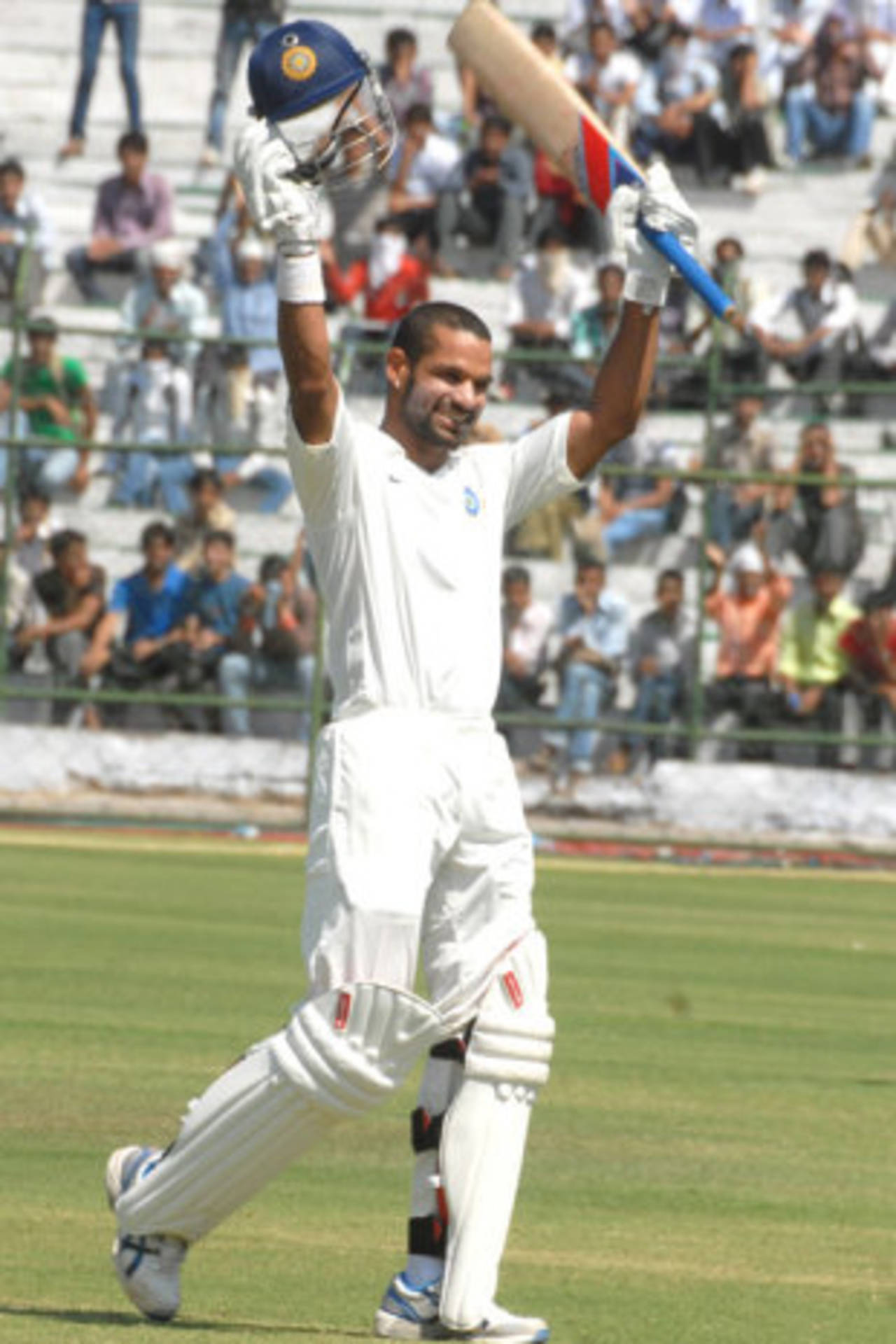The Irani Cup's slide towards irrelevance continued with a four-day
thrashing of the Ranji champions at the Chinnaswamy Stadium in Bangalore. It didn't need an expert to predict how this match would pan out: Rest of India comprehensively dominated a Rajasthan side that lacked firepower in both batting and bowling to compete.
"This time I am pretty happy with the way we have faced the Rest of India," Rajasthan captain
Hrishikesh Kanitkar said, despite the innings-and-79-run mauling, highlighting the difference in quality between the two sides. "I think it gives us a slight advantage over other teams since we have already played one first-class game. I think we should be building up on that and not thinking about the result for Rest of India was definitely a stronger team."
While this year Rajasthan were hamstrung by the absence of four important players, including two on the concurrent India A tour of New Zealand, the Irani Cup has mostly been one-way traffic in recent times. Rajasthan were battered by 404 runs in the previous season, and even Mumbai, traditionally the pre-eminent team on the Indian domestic circuit, were pummelled by 361 runs in 2010. In the past 14 years, the winners of the Ranji Trophy have added the Irani Cup to their collection on only two occasions.
It wasn't always so lopsided. When the Irani Trophy was conceived in 1959-60, the domestic scene was ruled by an all-conquering Bombay team that was just beginning its run of 15 consecutive Ranji title wins.
Much of the cricketing talent in the following decades came from the big centres such as Bombay, Delhi and Karnataka. In recent years, talent isn't as concentrated in one state side, with players emerging from smaller towns all over the country. That has contributed to weaker Ranji winners, stronger Rest of India teams and fewer close contests.
The Irani Trophy was also once a stage for staking a claim for a national berth; it is unlikely performances in the tournament carry as much weight as before. Cashing in against the military-medium of Deepak Chahar and Aniket Choudhary hardly shows how well-equipped you are to face Stuart Broad and James Anderson. No one would bat an eyelid if you score a century; to have any sort of impact a gigantic effort is required, such as M Vijay's ten-hour 266.
The BCCI's added emphasis on A tours from this year also bring in series which will provide a better picture of a player's ability. The
A team tour of the Caribbean earlier this year proved unproductive for several players who've built up enviable domestic records. One of them is
Shikhar Dhawan, who plundered twin 150-plus in
last year's Irani Cup, but only scratched out 30 runs at 7.50 against West Indies A.
Another reason which makes the Irani Trophy pointless is the mushrooming of Twenty20 tournaments, which have to be factored into the domestic calendar. While the IPL provides a strict marker for when the state-based tournaments must end, the Syed Mushtaq Ali and the Champions League Twenty20 have to be squeezed into prime domestic cricket time.
That has meant packing in matches as tightly as possible. Even as recently as 2004-05, players got, on an average, at least five days between each Ranji Trophy first-class match. Last year, it was down to three, as the teams raced through the Ranji season. With the new three-tier system, every team will play more first-class matches - a welcome development - but it tightens the calendar further.
The context-free match, with the Rest of India having assembled for just a week, didn't even serve as a lead-up to the first-class season for the Ranji champions, and has passed its use-by-date.
